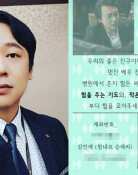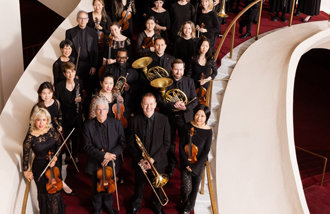English-Only Zone Planned for Jeju
An English-only town, where all classes and conversations will be carried out in English, will open on a 1.15 million pyeong site in Seogwipo City, Jeju, as early as 2010.
Also, a for-profit management service organization (MSO) will be established with investment from hospitals and medical corporations to attract health care firms.
This was announced by the government, together with the Ministry of Finance and Economy and 21 other ministries and offices, in Comprehensive Countermeasures to Strengthen Competitiveness of the Service Industry, on December 14.
The English-only town in Jeju will have various English education facilities, including an English education center, an elementary, middle and high school, a university, and private academies. Here students can stay for one to two years and take classes in English while saving more than half of what they spend on studying English abroad. School within the town will operate as a self-supporting private school, while the educational expenses of children from lower class families will be paid for selectively.
The government will encourage rationalization of management for hospitals and medical corporations, making them reduce expenses by sharing expensive medical equipment through MSO, which is run as a profit making organization. MSO will be allowed to raise capital by issuing corporate bonds and also do brand advertisements.
Several tax benefits will also be initiated in the service industry. Starting from 2007 and lasting for three years, a composite property tax for hotels, golf courses and ski resorts will momentarily be a single tariff of 0.8%, when the assessment value is more than 20 billion won.
Also, the temporary investment tax credit system (deduction rate 7%) which is supposed to come to an end this year, will be extended for one year, and plans are underway to lower development expenses for service industry land development projects to the same level as those of the management industry. Along with this, to increase the demand in the culture industry, if more than 5% of total culture entertainment expenses are spent on purchasing performances, the government has agreed to acknowledge up to 10% of the expense limit as business activity-related expenses. Apart from this, when building libraries or literary halls, companies will ex exempted from transportation expenses. The electricity fees for hotel complexes will be the same as prices of industries with low tariffs until 2010.
Such measures are welcomed by the related businesses, but some experts are concerned about how realistic it will be to carry out the list of policies.
It is good to attempt to bring along new grounds for improvement in the service industry, but with too many new policies, it may be difficult to select and concentrate on when carrying it out, said Cha Mun-jung, a senior researcher at Korea Development Institute. He added, Different policies must be made depending on the distinctive traits of the industry.
ddr@donga.com sanjuck@donga.com







